
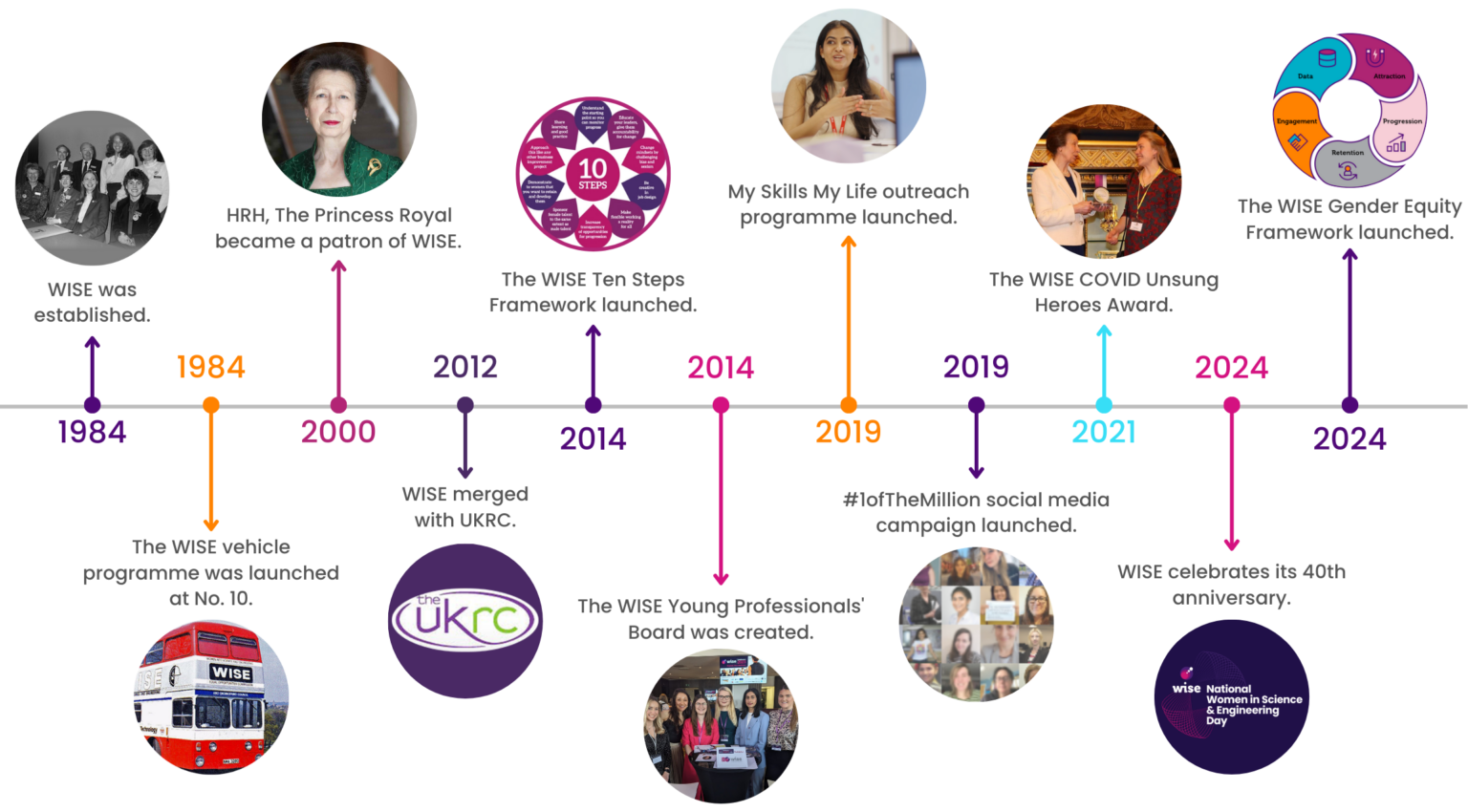
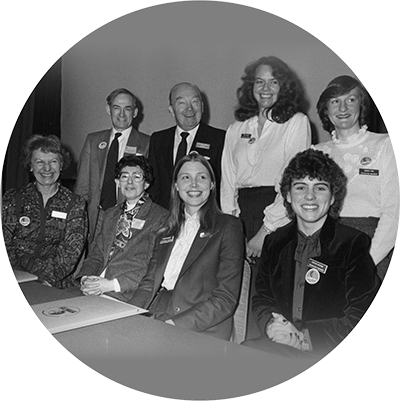
Photo: WISE launch on 17th January 1984
Front row, left to right: Lady (Beryl) Platt – Chairman, Equal Opportunities Commission, Professor Daphne Jackson, Joanna Kennedy- Professional Engineer, Yvette Hitchin – Technician Engineer,
Back row, left to right: Dr Kenneth Miller – Director at the Engineering Council, Sir Kenneth Corfield – Chairman at the Engineering Council, Tracy Wright – Technician Engineer, Mandy Fisk -Technician Engineer.
WISE was established in 1984 following the Finniston Report on the future of engineering in the UK.
The report emphasised the need for a broad talent pool of scientists and engineers. At that time, women comprised only 7% of graduate engineers and 3% of professional engineers in the UK.
Fast forward 40 years, and there are 22% of graduates in engineering and tech with 10.9% of professional engineers. WISE has evolved to champion gender parity across all STEM sectors, helping a huge number of individuals, organisations, and businesses, with a wide range of campaigns to raise the profile of women and girls in STEM.
In 1984 the Engineering Council collaborated with the Equal Opportunities Commission to launch the Women into Science and Engineering (WISE) year. Spearheaded by Baroness Beryl Platt, Chair of the Equal Opportunities Commission at the time, the initiative intended to highlight the career opportunities for girls and women in science and engineering professions.
WISE Launch, 17th January 1984
In an article in the Times about the launch, Sir Kenneth Corfield of the Engineering Council said: “Industry will be greatly helped if we acknowledge and encourage the intelligence which girls and women bring to engineering”. As true today as it was 30 years ago…
The Times – ‘More women urged to work in science’ – published on Wednesday, January 18 1984.
In the same year, a pamphlet entitled Jobs for the girls… why not become an incorporated engineer or technician in electrical and electronic engineering was circulated throughout schools. In addition a leaflet called ‘What is WISE year all about?’ was distributed to education institutions and businesses to highlight the ‘waste of women’s potential in an area of national importance’. Suggestions for action included reassessing teaching methods and establishing school-industry links.
Read more about the history of WISE from an article written by Terry Marsh, who was chief executive for WISE from 2006 to 2010.
“When WISE started its work in 1984 only seven percent of engineering graduates were female. By the turn of the millennium, that number had more than doubled to 15 percent. Many factors have contributed to this change, but WISE has played an important role, raising awareness of the possibilities of SET for girls and women.”
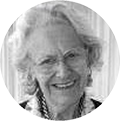
Beryl Catherine Platt, Baroness Plat of Writtle, Founding Chair and Patron of WISE
Baroness Platt was the Founding Chair and Patron of WISE, and a role model to all girls who were thinking of following a career in engineering. Even at the age of 90, Baroness Platt took an active interest in the WISE campaign.
She chose to study engineering because the Government offered £25 per week pocket money for engineering undergraduates (“this was a fortune to me at the time”), because the country needed more engineers to re-build Britain after the second world war. When the young Beryl Myatt arrived at Girton College, Cambridge, she found herself one of only five girls amongst 250 men reading Mechanical Sciences, (which we now know as Engineering).
In 1943 women were not allowed to graduate with the same honours as their male counterparts, so she was not awarded a degree, only a ‘Title of degree’. It was only in 1948 that women were admitted to degrees at Cambridge.In 1981 Beryl Platt was appointed to the House of Lords, choosing the name Baroness Platt of Writtle, after her home village in Essex. Lady Platt became the chair of the Equal Opportunities Commission in 1983. In 1984, as a result.
HRH, The Princess Royal
In the year 2000, HRH, The Princess Royal became a patron of WISE.
In the same year, the first WISE Awards were held to recognise and celebrate inspiring women in Science, Engineering and Technology fields.
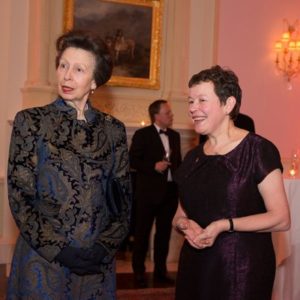
WISE Vehicle Programme
Between 1984 and 2003 the WISE Vehicle Programme helped to give 13-14 year old girls the opportunity to have hands on experience of science and technology. The WISE vehicle programme was launched at No. 10 Downing Street, London, by the then Prime Minister Margaret Thatcher MP.
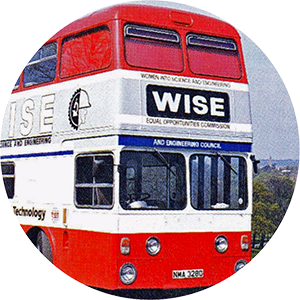


UKRC
In 2012, WISE merged with UKRC, which had a contract from the Government from 2004-12 to increase opportunities for women in science, engineering and technology through support services to business, education and women returners.
Annette Williams, founding Director of the UKRC 1956-2017
In July 2017, we were sad to hear of the passing of Annette Williams, founding Director of the UK Resource Centre for Women in Science, Engineering and Technology (the UKRC).
Her experience as the only woman when she re-trained as a motor mechanic fuelled a fierce determination to challenge the cultures which exclude women from fully participating in science, engineering and technology and to improve support for women to enter and flourish in these areas of work. Read full tribute
The WISE Ten Steps Framework
In February 2014, WISE met industry partners at Number 10 Policy Unit in a bid to understand what a holistic initiative to improve gender balance in STEM might look like.
From that meeting we created the Ten Steps Framework, which set out to provide a co-ordinated set of actions that STEM employers could use to improve diversity in their workforce based on lessons learnt by other organisations.
The Ten Steps set out ten distinct challenges for companies looking to create cultural change to overcome. It was designed with organisational performance and a business case for diversity in mind. Ultimately, to provide a positive difference to diversity and inclusion within all of our committed WISE member organisations.
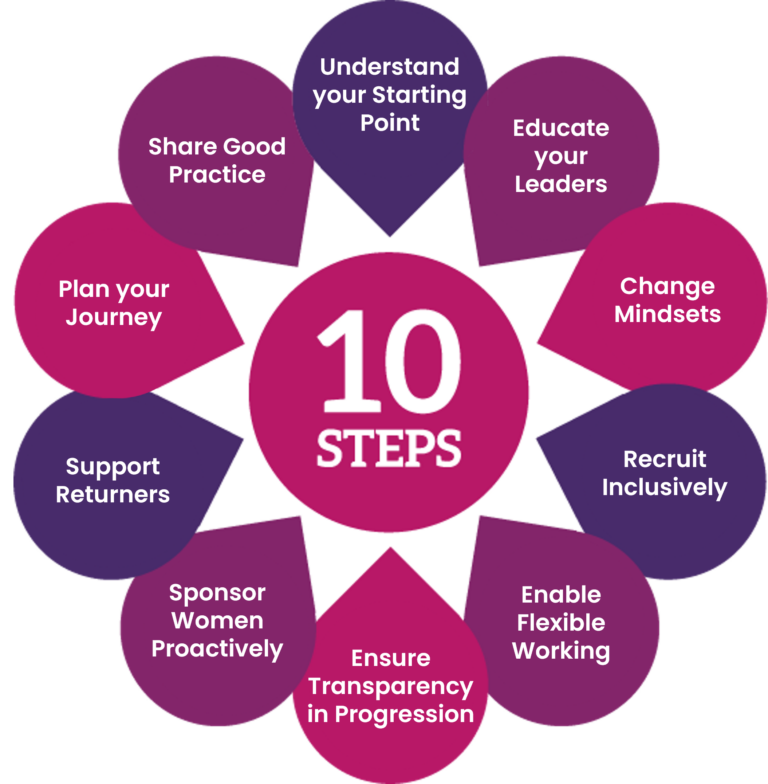
My Skills My Life
My Skills My Life launched in 2019 and was created by WISE to inspire girls aged 11-19 to consider a career in STEM. It allows girls to find out about their preferred personality types and matches them with role models who have rewarding and successful careers in STEM.
As of 2024, we have reached over 1000 schools and over 26000 individuals. Our online platform has over 1200 role model case studies, which include information about pathways and brings the role models to life.
My Skills My Life is unique as a careers tool in that it doesn’t just showcase STEM careers but focuses on fantastic people who are working in STEM. Research-based, My Skills My Life uses role models and personality traits to help girls identify with their STEM identity.
Learn more > My Skills My Life
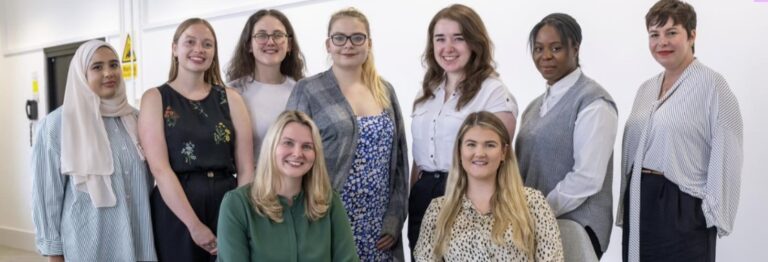
WISE Young Professionals’ Board
The WISE Young Professionals’ Board, formerly the WISE Young Women’s Board, was created in 2014 to champion and promote the visibility of young professional women in STEM.
Learn more about the WYPB members: Young Professionals Board
WYPB Instagram: WISE Young Professionals’ Board (@wise_ypb)
Unfiltered STEM | Podcast on Spotify
Celebrating One Million Women in STEM
In 2019 WISE launched the #1ofTheMillion social media campaign to celebrate how over one million women were working in core STEM fields across the UK.
The WISE Covid Unsung Heroes Awards
In 2021, HRH, The Princess Royal attended the WISE COVID Unsung Heroes Award ceremony at Windsor Castle to recognise women’s hard work and contribution during the pandemic.
Read more > The COVID Unsung Heroes Awards 2022 – a great success
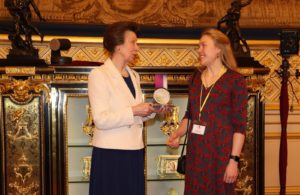
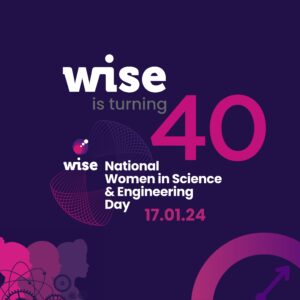
WISE 40th Birthday Celebration: Moving the Dial in STEM for 40 Years
In 1984, the journey began. At that time, women comprised only 7% of graduate engineers and 3% of professional engineers in the UK.
Fast forward 40 years, and there are 22% of graduates in engineering and tech with 10.9% of professional engineers. WISE has evolved to champion gender parity across all STEM sectors.
Celebrating 40 years of empowerment, WISE proudly introduces the National Women in Science and Engineering Day. How are you helping to #MoveTheDial? WISE day is a celebration and a call to action. This annual event, launching on 17 January 2024, is dedicated to honouring the achievements of women and allies in STEM. A groundbreaking initiative, it spotlights the contributions of women and champions diversity within STEM disciplines.
Learn more > Women in Science and Engineering Day #MoveTheDial

In 2023, we saw an opportunity to update our existing Ten Steps Framework. After careful consideration and consultation with our members and EDI experts we created our new WISE Gender Equity Framework.
The WISE Gender Equity Framework was officially launched at our 2024 WISE Conference.
The new framework consists of five pillars that encompass all aspects of workplace diversity and inclusion: data, attraction, progression, retention and engagement. Specific EDI topics are grouped together within these pillars, to represent an overall approach to EDI management and development for both corporate organisations and academic institutions.
The framework, and associated diagnostics, provide a clear overview of the current status of EDI within your organisation through a detailed data set to help you measure and monitor your progress.
Learn more > WISE Gender Equity Framework
